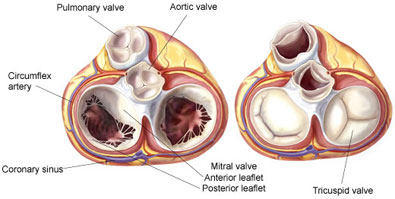Adam's Heart Valve Surgery Blog – Page 69
“Can Heart Valves Be Repaired?” Asks Linda
By Adam Pick on August 29, 2008
I was never a candidate for heart valve repair. By the time, my bicuspid valve was diagnosed with severe stenosis, both my first- and second-opinion cardiologists suggested an aortic valve transplant.
Still, every once in a while I get a question from a patient about this topic. Recently, Linda asked me, “Can heart valves be repaired or are they always replaced?” and “Are there different types of heart valve repair?”
The answer to Linda’s first question is “yes” – a diseased heart valve can be repaired. In fact, some recent studies suggest that heart valve repair may provide a better long-term solution than heart valve replacement. As for the answer to Linda’s second question, there are different kinds of heart valve repair. According to the Texas Heart Institute, here are the different types of valve repair:
- Commissurotomy, which is used for narrowed valves, where the leaflets are thickened and perhaps stuck together. The surgeon opens the valve by cutting the points where the leaflets meet.
- Valvuloplasty, which strengthens the leaflets to provide more support and to let the valve close tightly. This support comes from a ring-like device that surgeons attach around the outside of the valve opening.
- Reshaping, where the surgeon cuts out a section of a leaflet. Once the leaflet is sewn back together, the valve can close properly.
- Decalcification, which removes calcium buildup from the leaflets. Once the calcium is removed, the leaflets can close properly.
- Repair of structural support, which replaces or shortens the cords that give the valves support (these cords are called the chordae tendineae and the papillary muscles). When the cords are the right length, the valve can close properly.
- Patching, where the surgeon covers holes or tears in the leaflets with a tissue patch.
I hope that helps explain that heart valves can be repaired through a number of different approaches.
Keep on tickin!
Adam
Mechanical Or Bioprosthetic Heart Valve Replacements?
By Adam Pick on August 29, 2008
Earlier today, Helia wrote to me, “Adam – I have been diagnosed with severe aortic valve stenosis. My cardiologist recommends surgery within the next two months. I’m confused by everything right now. Especially, I’m confused by all the different types of valve options. Which is better for me – a mechanical or bioprosthetic heart valve replacement?”
I really feel for Helia. In fact, I feel for all patients that are going through the very, very, very, very awkward and fearful experience of being diagnosed with heart valve disease. As I remember, it’s not fun. Still, I’m not going to wallow in the negative because I know that heart valve surgery is a medical miracle for most patients that need valve repair or valve replacement.
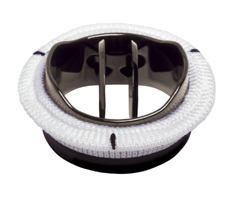
On-X’s Mechanical Heart Valve
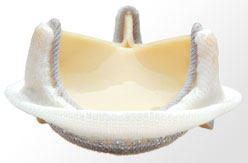
As for Helia’s question of, “Should I get a mechanical or bioprosthetic heart valve replacement?”, that is a great question. As you would imagine, selecting a heart valve replacement – mechanical or bioprosthetic – is not unlike selecting anything else (a car, a home, a new computer, or even a spouse). There are trade-offs, or pros and cons, for both mechanical heart valves and bioprosthetic heart valves (including pig valve replacements or cow valve replacements).
“On-X For Mitral Heart Valve Replacement?” Asks Vivian
By Adam Pick on August 27, 2008
Vivan has a severe mitral regurgitation disorder and is preparing for mitral valve replacement operation. She is currently considering several different valve types (tissue, homograft, mechanical) and valve brands (Edwards, Medtronic and St. Jude Medical).
Vivian’s question to me is, “Adam – Can you tell me about the On-X valve for mitral valve replacement?”

Take A Guess: How Many Mitral Valve Surgeries Per Year In The United States?
By Adam Pick on August 18, 2008
Ready to take a guess? Here’s the question:
How many mitral valve surgeries, including valve repair and valve replacement, are performed each year in the United States?
Any ideas?
If you need help, here is a hint… Each year, there are over 100,000 heart valve surgeries performed in the United States. (I know that wasn’t the greatest hint but I hope it helped you a little bit.)
For the answer, scroll down below the picture of a diseased mitral valve with calcified valve flaps.
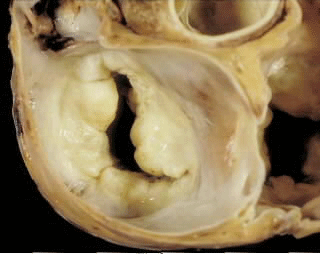
Samantha Asks, “Will My Mom’s Heart Stop During Valve Replacement Surgery?”
By Adam Pick on August 18, 2008
In an email, Samantha writes, “Hi Adam – I’m freaking out right now. My mother was just told that she will need open heart surgery to replace her mitral valve. I am on ‘information overload’ as I’m surfing the Internet like crazy. I’m trying to better understand the surgical process. Is it true that the heart is stopped during a valve replacement operation? If so, how do they stop the heart?”
Thanks for writing Samantha. I had this exact question as I was getting ready for my aortic valve replacement surgery.
The answer to your first question is “Yes, most likely, your mother’s heart will be stopped during her mitral valve replacement.” However, you should know that there are a number of heart surgery procedures in which the heart does not necessarily have to stop beating.
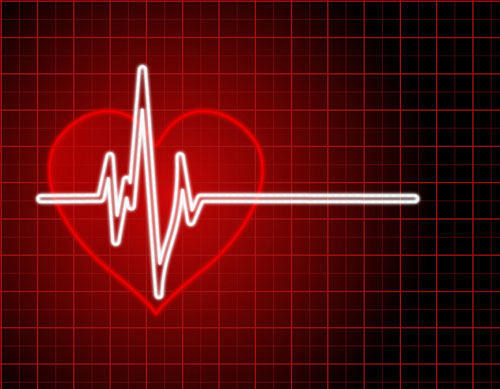
Ken’s Cardiac Catheterization Procedure – Insurance, Fear, Pain, Going Home
By Adam Pick on August 18, 2008
Considering that a cardiac catheterization is on Time Magazine’s “Top 10 Scary Medical Procedures”, I am always looking for good patient information to dispel the fear associated with this procedure. (FYI, many heart valve surgery patients have a cardiac catheterization prior to valve repair and valve replacement operations.)
On that note, Ken just sent me a very detailed account of his recent cardiac catheterization. So you know, Ken has severe mitral regurgitation and is scheduled for surgery later this month. As you can read below, he has some interesting points specific to insurance, fear, the procedure and going home afterwards.
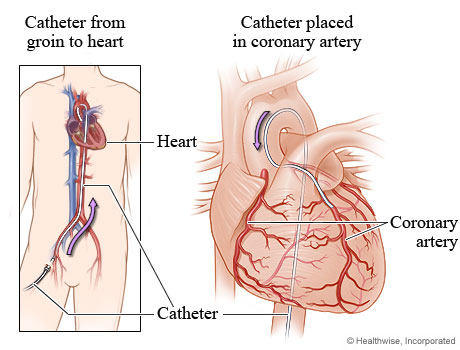
Without further ado, here are Ken’s thoughts specific to his recent cardiac cathetherization:
Insurance Considerations For The Cardiac Catheterization
I am enrolled in an HMO and therefore needed referrals from my primary care physician for the cardiologist and the hospital. Since my cardiologist was performing the procedure at Massachusetts General Hospital, I also needed a referral for the admitting cardiologist there as well.
“Does Anyone Have Migraine Headaches & Mitral Valve Prolapse?” Asks Brenda
By Adam Pick on August 18, 2008
Brenda just emailed me an interesting question about mitral valve prolapse and headaches. She writes, “Adam – I was diagnosed with prolapsed mitral valve over ten years ago. However, I have been completely asymptomatic since then. Recently, I have had really bad headaches… They might even be migraine headaches. Do you know if that is a symptom of mitral valve prolapse?”

This question raises two interesting points specific to heart valve disease.
- First, patients can be completely asymptomatic – meaning they do not have any of the documented symptoms of heart valve disease. I fell into this category of patients. Out of all the documented symptoms of leaking heart valves, I only really had one small symptom that forced me to see my cardiologist. To learn more about the symptoms, click here.
- Second, symptoms manifest differently for each patient case. There is no “one-size-fits-all” symptom-set that triggers the diagnosis of disorders including aortic stenosis or mitral regurgitation defects, etc.
Back to Brenda’s question… I just reviewed the symptoms of mitral valve prolapse. According to the Mayo Clinic and Cleveland Clinic, headaches are not common for mitral valve prolapse. However, after reviewing the symptoms listed at Medicine Net, migraine headaches are on their list of symptoms for MVP.
Given that variance in commonly identified symptoms, I would encourage you to see your cardiologist and get checked out. If, by chance, your mitral valve prolapse is triggering your headaches, it would be better to know sooner than later. I hope this helps.
Keep on tickin!
Adam
Open Heart Surgery Scar For Women – Jenny’s Picture Request
By Adam Pick on August 15, 2008
Jenny must be tired of seeing my scar sprinkled throughout this website. She asks, “Adam – Do you have any pictures of incision scars for women who have had open heart surgery? I’m getting ready for open heart surgery and would like to see what my chest scar might look like.”
Well, I do have two pictures of women which show an open heart surgery scar at different stages of the recovery. The picture below shows a woman still in the hospital (shortly after surgery).
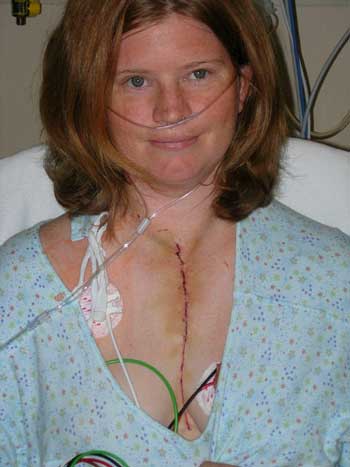
The next picture shows a lady who appears to be fully recovered. You need to look real close to see the incision scar which is no longer red (as shown above) but white. Yes, this picture is a little artsy but it does a good job showing just how well the skin can heal.
Iraqi President, Jalal Talabani, Has Heart Valve Surgery At Mayo Clinic
By Adam Pick on August 15, 2008
The list of political figures having heart valve surgery continues to grow. In addition to Governor Arnold Schwarzenegger and former Senator Jessie Helms, I just learned that Iraqi President, Jalal Talabani, was discharged Thursday from the Mayo Clinic after undergoing successful surgery on a heart valve.
The statement by the presidential press office said Jalal Talabani initially went to the hospital in Rochester, Minnesota, on August 2nd for knee surgery but that “the medical team found out that he suffers from a problem in one of the heart valves.”

“This has required surgery and it has been done with success,” the statement said. It said the president left the Mayo Clinic on Thursday morning and was “in good health.”
The 74-year-old Jalal Talabani collapsed and was hospitalized in Jordan and the United States in February 2007 after suffering from what aides called exhaustion and dehydration caused by lung and sinus infections. Mahmoud Othman, a prominent Kurdish lawmaker who is close to the Kurdish Jalal Talabani, said the Iraqi president would receive treatment for his knee at a later date.
Mayo Clinic spokesman Bryan Anderson said that at Talabani’s request, the clinic had no comment.
Keep on tickin’ President Talabani!
Adam
Bras And Breast Support After Open Heart Surgery… Can You Help Vicki? (Updated)
By Adam Pick on August 13, 2008
Don’t let the title of this blog fool you. There is no weird, sexy, fetish thing going on here. 🙂
Instead… With this post, I am asking for HELP from the female, heart surgery patients that regularly read this blog.

Specifically, Vicki is preparing for open heart surgery in three days. She just emailed me an urgent question about the use of bras after cardiac surgery. I have some thoughts on the topic (even though I don’t have breasts). But, I imagine a few of our female patients – that means you Becca, Joanne, Heather – might have some interesting advice for Vicki. That said, can you help her?
Golfing, Heart Surgery And Dennis’ Hole-In-One
By Adam Pick on August 13, 2008
I stunk at golf before heart surgery. Really, in thinking about it, that might be an understatement. Now, it is several years after my open heart surgery.
Guess what?
I STILL STINK AT GOLF!!!
But, that is not the point I’m trying to make. Here’s the point… Many patients head into heart surgery in a world of uncertainty with questions like “Can I do this activity post-surgery?” or “Will I be able to do that after surgery?”
All of these doubts are completely rational. I did the exact same thing when I was rolled in for my aortic valve replacement opeartion. But, I’m here to tell you, after a double heart valve replacement, that you can fully recover and you can restore your body to re-achieve whatever you set your mind too.

Thanks To ABC For “Hopkins” Mini-Series
By Adam Pick on August 13, 2008
Earlier this summer, we chatted about the debut of “Hopkins” on ABC and the sometimes, overly dramatic Grey’s Anatomy.
Well… Robyn (my wife) and I just watched the seventh-and-final episode of this very unique, very touching mini-series about the reality of working at Johns Hopkins Medical Center in Baltimore Maryland.

Gail’s Pounding Heartbeat Question Triggers A Memory
By Adam Pick on August 9, 2008
There are some things about my aortic valve replacement surgery that I will never, ever, never, ever, nehhhhh-verrrrr forget. (To learn more, click here.)
One such memory is that of my LOUD and POUNDING heartbeat on the second night home from the hospital. It was around 10pm on a Monday evening. Robyn, my wife, had just laid down next to me in bed. We talked for a bit and then, after exchanging “I Love Yous”, we entered that silent period right before sleep.
As we laid quietly in the dark, my new heart decided to make its presence known. A “Bum-Bump” rattled in my chest and head. Then another “Bum-Bump”. It became louder and faster “BUM-BUMP! BUM-BUMP! BUM-BUMP!” I instantly became fixated on the loud repetitive sound. In fact, I became thrilled knowing that my heart valve flaps were working so well. (Fyi, your heart valve leaflets make the “Bum-Bump” sound in your heart as they open-and-close.)
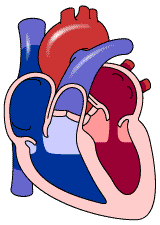
From ICU Nurse To ICU Patient To Cardiac Depression… Carol’s Story
By Adam Pick on August 9, 2008
I just received this wildly coincidental email from Carol. It’s amazing to read about Carol’s perspective on heart valve surgery, considering she was formerly an intensive care unit (ICU) nurse. Here is what she wrote:
Dear Adam,
Thank you! Thank you! Thank you for sharing your experience in your book. I am 6 weeks post-op mechanical aortic valve replacement (Carbomedics). Now, here’s the weird part…
I was a patient in the same ICU that I was the Charge Nurse of back in the 1970’s! They say “a little knowledge is a dangerous thing”. I was VERY aware of my post-op complications as they were happening. Receiving four units of blood and going into a rapid atrial fibrillation with a heart rate of 150-160 several times was a unique experience!
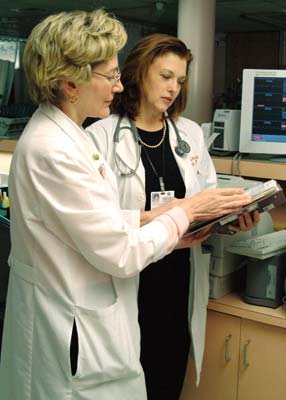
Jason’s 26 Year Old Bjork-Shiley Mechanical Valve Stays Put
By Adam Pick on August 9, 2008
One of the most common questions I get relates to the life expectancy of heart valve replacement devices. It’s a great question that fundamentally underlies a critical patient concern. That concern is the fear of a second cardiac surgery operation.
In prior blogs, I have written about the life expectancy of pig valves, cow valves and human donor valves. Earlier today, I received an interesting email from Jason about the longevity of his Bjork-Shiley mechanical heart valve replacement. Here is what Jason had to say:
“Hi Adam – I just came across your website. I had my aortic valve replaced in 1982, at 29 years of age. I have just found out that I need surgery for an aortic aneurysm, I’m 55 now. I have a Bjork-Shiley mechanical valve. I asked my surgeon if he would be replacing the valve while he was in there, since it is now 26 years old. I was surprised to hear that he wouldn’t be, unless there were problems with it. Thanks. Jason”

Frustration, Nerves, Leaking Heart Valves, Test Results And Non-Surgical Options
By Adam Pick on August 9, 2008
Dan, from California, wrote me an interesting email that I could relate to whole-heartedly. Here is Dan’s email and my response:
Adam,
I have always been very healthy, normal blood pressure and EKG, no problems. I am 65, low cholesterol, slender, no health history problems, and I do not smoke. Body scanning reveals no blockages.
After noticing some breath shortness after briskly walking, my doctor suggested a stress echo EKG test, which I had done yesterday. The tech and the doctor administering the test wouldn’t say anything, other than the tech saying the pictures appeared okay – a “good squeeze”.

“No-Blood” Open Heart Surgery For Jehovah’s Witnesses… For Cindi’s Mom
By Adam Pick on August 9, 2008
It doesn’t matter what sex you are, what race you are, what country you are from or what religion you are… Heart valve disease has and will continue to impact most segments of the population.
Recently, I received a note from Cindy about her mother who needs heart valve replacement. Cindi’s mother is Jehovah Witness. As a result of her faith, Cindi’s mother requires a no-blood surgery. She writes to me, “Dear Adam – My mother was recently diagnosed with needing aortic valve replacement and a bypass. She is a Jehovah’s Witness and requires “no-blood” open heart surgery. Do you personally know of anyone ever having this done? My brothers and sisters and I are gravely concerned. We have our doubts about the no-blood heart surgery. I would love to hear from you. Cindi”

So you know, I’ll be the first to admit when I don’t know something. And, this question definitely positioned me in the land of “I don’t know.” That said, I was very intrigued to learn more about practices of Jehovah’s Witnesses as it relates to no-blood or bloodless surgery.
Restarting The Heart After Surgery… A Fear For Barbara’s Husband
By Adam Pick on August 5, 2008
I’ll never forget my reaction when Doctor Vaughn Starnes explained to me the procedure for cooling, stopping and restarting my heart.
“So let me get this straight,” I emphatically questioned the gray-haired guru, “You’re going to stop my heart, cool it, fix it and then restart it using an electric shock?”
Doctor Starnes paused, looked calmly into my eyes and then replied with a simple, unemotional one-word response, “Yes.”
“Ohhhhhhhhh-kaaaaaay,” I slowly muttered in a humble daze as I pondered the magic of modern medicine.
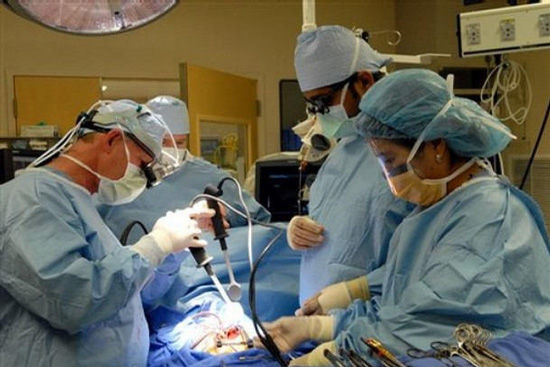
Caring For A Heart Surgery Patient: Ideas For Molly?
By Adam Pick on August 5, 2008
Sometimes when I write these blogs, the process is effortless. I sit down. I start writing. And… POOF! Five, ten or fifteen minutes later I have a draft specific to the question or topic at-hand.
Well… Not this time. Why? Well, I just received a question from Molly that reads, “What is the best way to care for a heart surgery patient?”
As I sat in front of my computer, I began to think about all the different elements (pre- and post-operative) that my own support group had to deal with – including the shock of diagnosis, getting a second opinion, finding the right surgeon, selecting the right procedure, my five days in the hospital, and of course, the challenges of heart surgery recovery (cardiac depression, pain, etc.).

In light of all that, a single answer to Molly’s question escaped me.
Heart Valve Flaps – What Are They? How Do They Work?
By Adam Pick on August 5, 2008
I just received a question from Laura which asks, “My mom was recently diagnosed with a mitral valve regurgitation problem. During her discussion with the cardiologist, he said that her valve flaps were not closing tightly and causing a leak. What exactly does this mean?”
Understanding heart valve anatomy is critical to better understanding the diagnosis of heart valve disease and the surgical steps required to fix the problem. That is why this question about heart valve flaps is such a great inquiry.
Heart valve flaps are also known as heart valve leaflets. The flaps, or leaflets, are composed of tissue. The flaps sole purpose is to open-and-close tightly to secure that blood flows through the heart in one direction. Each heart valve has three (3) heart valve flaps, except for the mitral valve which has two (2) heart valve flaps. Below you can see two diagrams of the human heart* with the white valve flaps in the opened and closed position.
